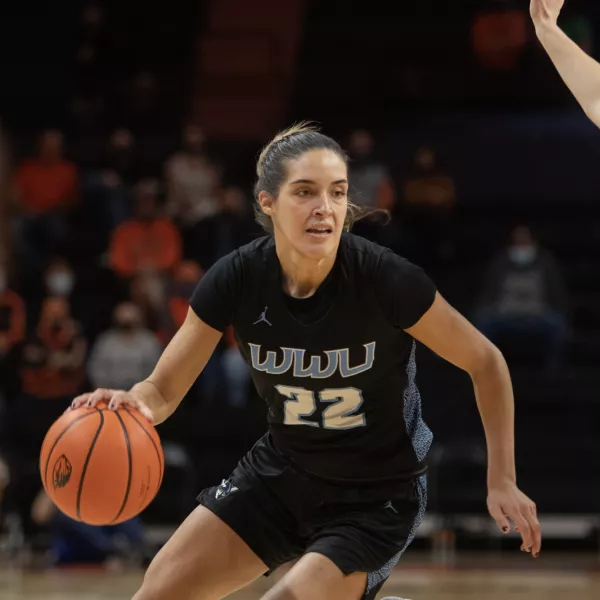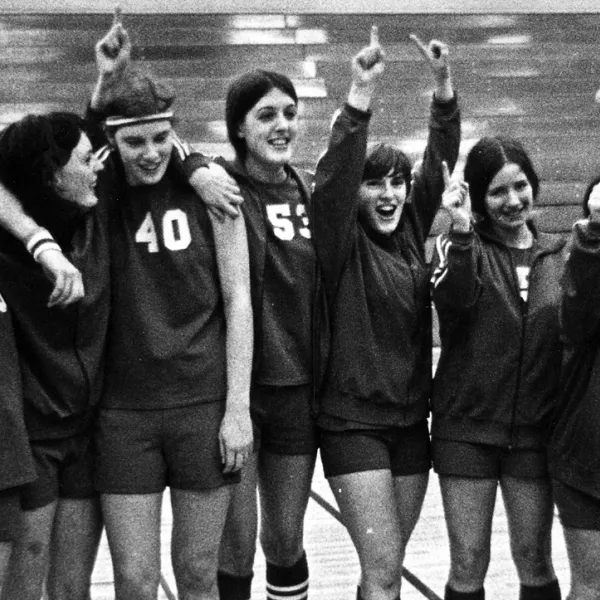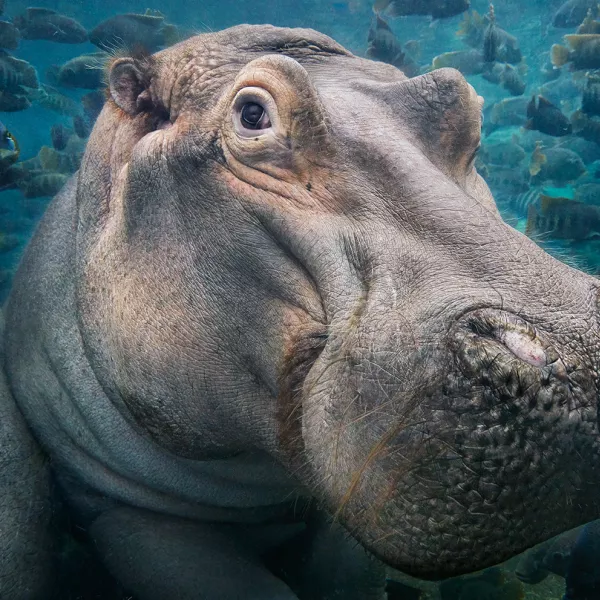Radioactivity
Scott Stokes and Jim Sterk met as seventh graders more than 40 years ago at Nooksack Valley Junior High, and though the miles between them stretched from a cross-town bike ride to a long plane flight, they’ve always stayed in touch.
Suddenly, that became much easier this summer.
The career trek that took Sterk to several big-time universities has now brought him back home to Whatcom County. He was named Western Washington University’s director of athletics in June.
“To wind up back here, to the place he really loves, is a good thing,” says Stokes, ’80, Sterk’s WWU roommate and football teammate. “I think he’s as happy about being here as he was being at any of those Division I places.”
It is something of a storybook arc: Local boy moves away, makes good, comes home. But it’s nowhere near the end of the tale.
After four career stops in Division I as an athletics director, Sterk relishes the opportunity to help the Vikings, already regarded as one of the premier NCAA Division II programs in the West, become even stronger and more competitive in the region and nation. This while also graduating even better prepared young people.
“True intercollegiate athletics are what I grew up with, that’s the Division II level right now,” said Sterk. “In Division II you get to focus on that student-athlete experience even more. A lot of (student-athletes) are paying their way. They’re playing sports for the sheer enjoyment of it, and they know their degree is more important down the road and will pay dividends for the next 40 years,” he says.
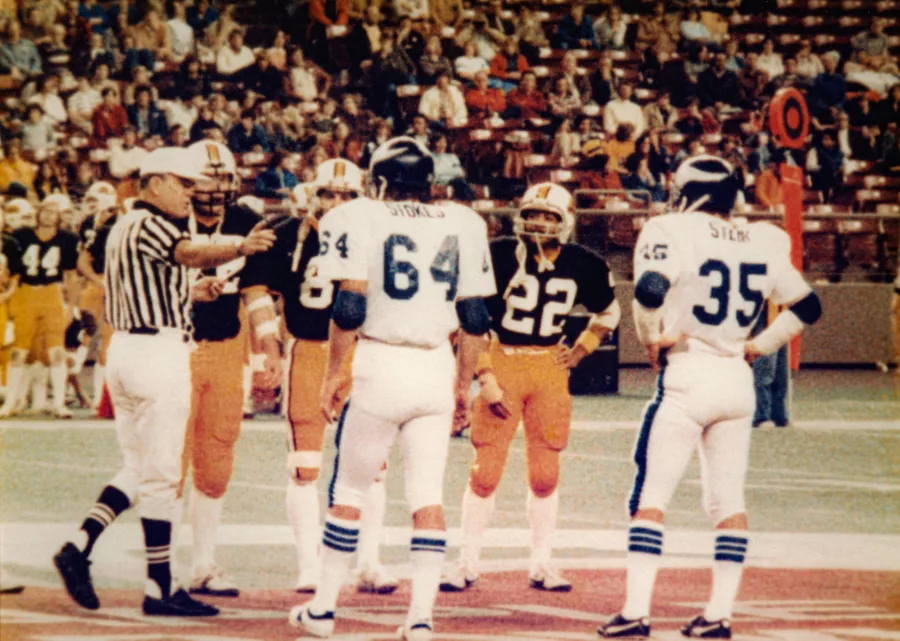
Much of what Sterk accomplished in his own career he can trace to his time on and around Sehome Hill. He was captain and a hard-hitting, record-setting linebacker who went on to become the 2016 National Division I Athletic Director of the Year. He was a popular teammate and classmate who would seemingly try anything, from football and basketball to rugby, tag-team wrestling and singing in theatrical musicals. Since graduating in 1980 with a BAE in physical education, this onetime farm boy has been a teacher, coach and executive who’s worked in seven states – and now it all promises to bear fruit in Bellingham.
“He was never about becoming the most famous AD in the land. It wasn’t his thing,” says Stokes, who preceded Sterk in the WWU Vikings Hall of Fame and was a long-time teacher, coach and counselor at Marysville-Pilchuck High School. “It was about doing the best job he could and creating a place where student-athletes could enjoy what they’re doing and be successful. He can do that at Western and maybe even have a bigger impact.”
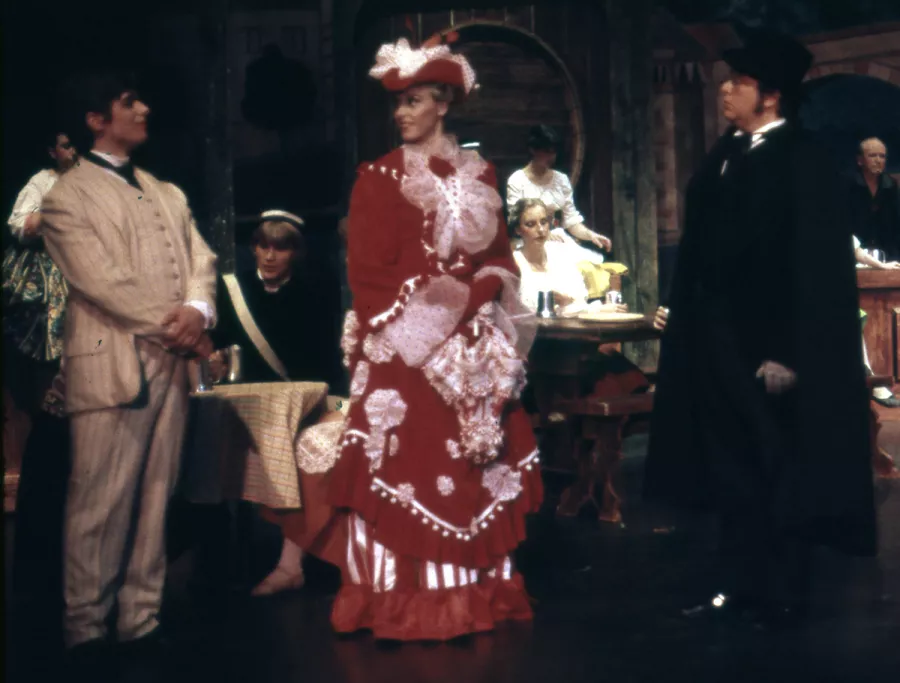
A Daydream Becomes Reality
Sterk’s interest in returning to Western was far from impetuous. A year ago, he mentioned to his former football teammate and fellow Viking Hall-of-Famer Hoyt Gier, ’80, that coming back to Western truly excited him. When Athletics Director Steve Card announced last fall that he was retiring in the spring of 2023, suddenly the daydream was a real-world possibility.
“I actually thought if the school had the courage to hire him, he could be the perfect person,” says Gier, who co-chaired Western’s successful $60 million capital campaign in 2016. “He’s a high-integrity, honorable guy who worked his way to the top of his profession. If you think about what he’s accomplished, that’s a helluva resumé.”
Whether it was Portland State, Washington State, San Diego State or Missouri, Sterk left each program better than he found it, be it improved graduation rates, greater athletic accomplishments, new facilities, or significant increases in fundraising. Each scene had its own challenges, yet the solutions were found by similar means. It started with listening.
So, after arriving in Bellingham, Sterk asked coaches for their SWOT: strengths, weaknesses, opportunities, and threats. “The term SWOT was utilized by Nike executives, and it’s not rocket science,” explains Sterk. “Having them go through the SWOT allows me to talk to the coaches in more detail about their programs, what’s going well, what’s threatening their ability to strive for excellence, and it helps focus.
“We put together areas of focus and those are all about the student athlete experience, their academic, athletics and personal development. If you focus on that, you make progress in facilities and resources and inclusive excellence,” Sterk says. “That really helps because in athletics you can be pulled in a million different directions.”
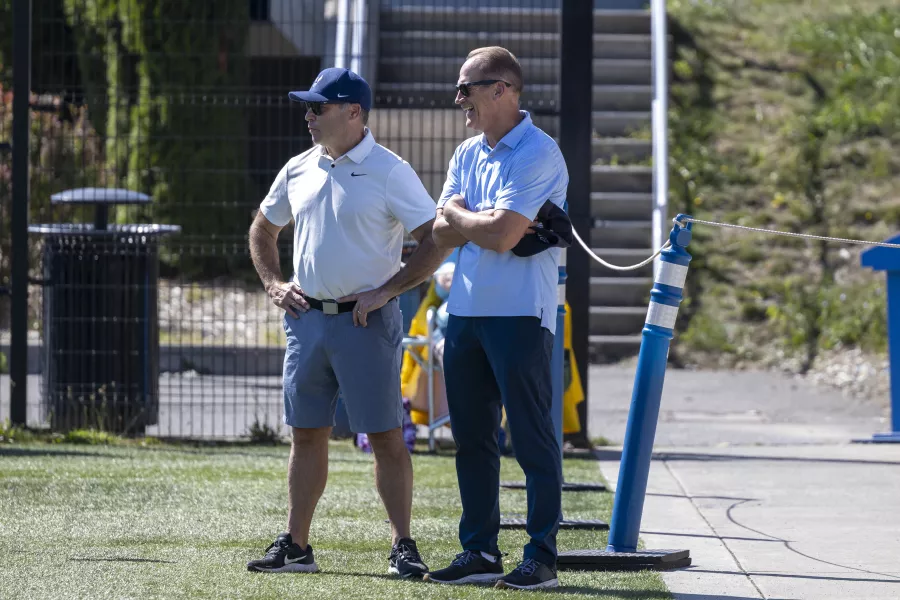
Listening, learning and doing the hard work: It’s not necessarily glamorous. However, doing it well and doing it repeatedly and getting results will attract attention.
A priority for Sterk is working closely with campus administration to bring more energy and activity to the campus. One of his first action items was to have all current Western students be able to attend regular season sporting events free of charge. That became a reality through partnering with the Whatcom Educational Credit Union and The Foundation for WWU & Alumni.
“Our games and matches are a part of the many great WWU activities our students can enjoy while showing school spirit,” says Sterk. “It will help create a great home-court atmosphere in Carver Gym and at all our home events.”
A Changing Western
When Sterk was studying at Western, enrollment was around 8,000. It’s now nearly double that. Carver Gym, Red Square and Old Main remain, yet many more buildings have sprouted between them. Football, baseball and wrestling are no more. Women’s rowing, soccer, and softball, which were just getting underway in Sterk’s day as a student-athlete with the beginning of Title IX, have won 11 out of Western’s 12 team national championships. (11 in the NCAA, one in the NAIA). Much has changed.
Football, which was dropped by Western in 2008, played a big role in Sterk’s life.
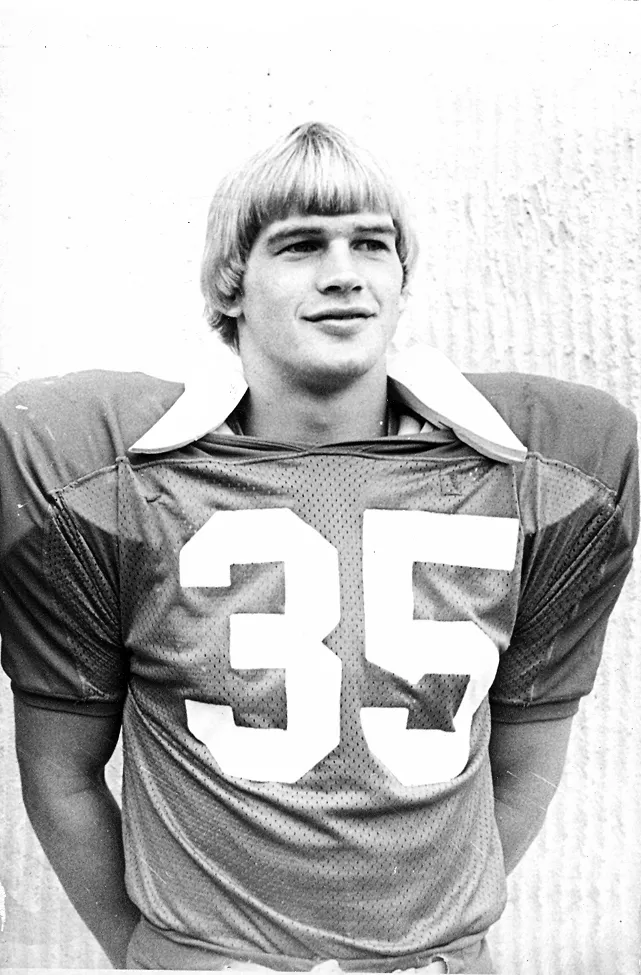
“My playing days were a special time for me as they were for many Viking football players,” says Sterk. “We still get together as teammates, and some have stayed long-time friends.
“The decision to cut the program was a tough one for the school to make, and it wasn’t all economics. It also was the landscape of Division II and that hasn’t really changed in the 15 years since.
“So, my efforts will be on the 15 sports we currently have to gain more exposure and prominence in advancing Western. Everyone here knows this school and campus is a special place, but we need to do an even better job of showcasing what’s going on here.”
Sterk’s focus will be on providing one of the best student-athlete experiences, addressing inclusion and equity in all facets, and making sure that the student-athletes are prepared for life after Western.
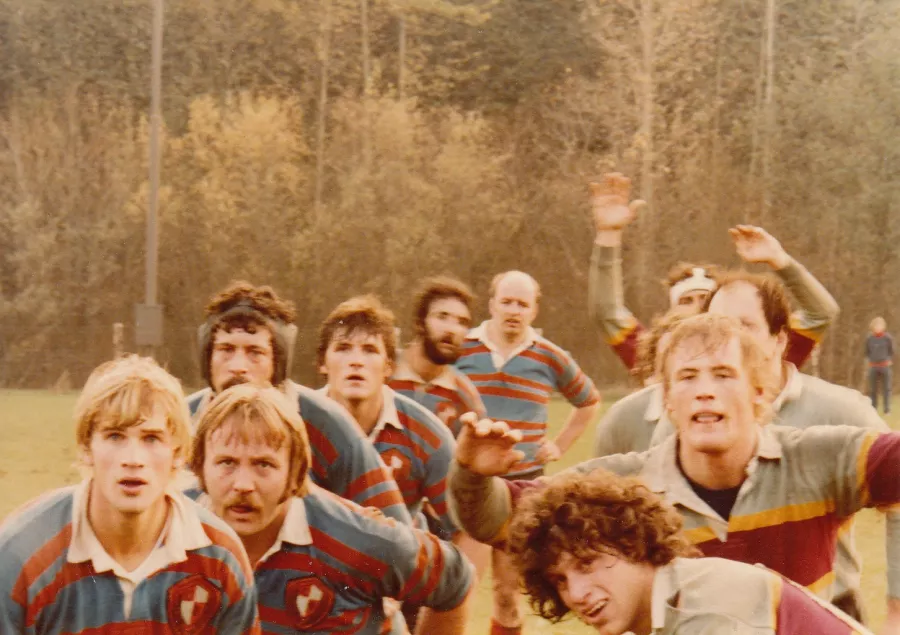
“Western and our alums can be very proud with how we compete,” Sterk says. “But I want to help our coaches, help our student-athletes continue to grow athletically, academically and in their personal development. Those are the areas I’ll be focusing on.”
To make those things happen, he’ll be working with the campus, community and around the state to develop funding sources to support the program.
“It’s going to take outside support for us to compete against the best from across the country, and that’s what we want to do,” Sterk says.
'Win It Right"
“Win It Right,” is a philosophy that Sterk has invested in and embraced throughout his personal life and professional career.
“It is a part of who I am and embodies the core values of my leadership style,” said Sterk, who explains the acronym R.I.G.H.T:
- “Treating everyone with Respect in celebrating individual values and honoring our stories
- “Building strength in upholding Integrity when tested.
- “Sharing Gratitude in appreciating every opportunity to pursue excellence.
- “Demonstrating Humility with a relentless desire to learn and grow.
- “And doing this Together by serving and fighting for the entire Viking family.”
Same core values
Family is foremost to Sterk. He grew up on his family’s dairy farm in Everson, with sports providing (for him) a welcome alternative to chores.
His wife Debi Sterk, born in Bellingham and an ’85 Western alum in exercise and sport science, was also an athlete. She competed in track and volleyball at Green River College. Together for 43 years, they have raised three daughters. One of them, Amy, is now following her father’s path as an associate AD at Tennessee.
Before each move, it was a family discussion; they all had a say. This time, knowing that they would be coming home, returning to their roots and many relatives, made it a slam-dunk.
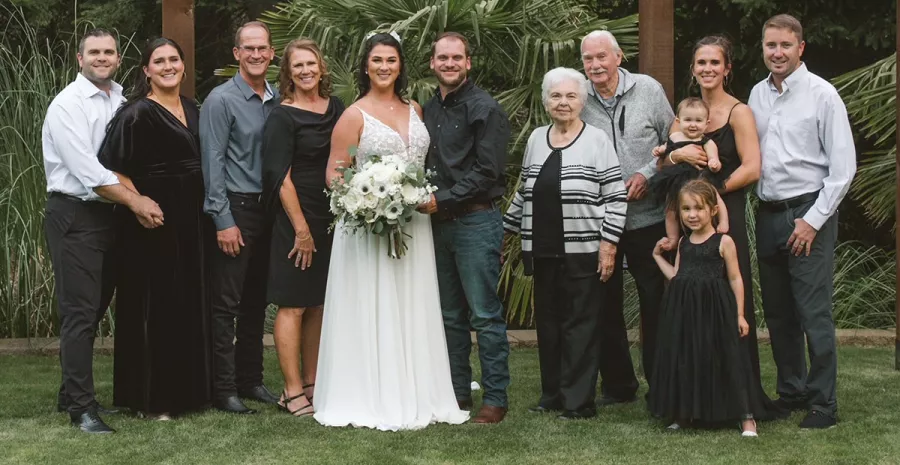
“He’s the same guy he always was,” says Stokes. “That’s what impresses us who knew him then and know him still. His station in life didn’t impact who he was in the least. Those solid core values he held dear as a kid have remained the same all the way through the journey.”
Sterk feels revitalized by the two years of what he calls “a sabbatical” since leaving his Missouri post. The job of Athletic Director can prove exceedingly stressful at times. Now, however, he finds himself energized – and it’s infectious.
“The new crop of students, they are different and unique,” he says. “To focus on their experience and their development is what gets me up in the morning and what I enjoy about my job.”
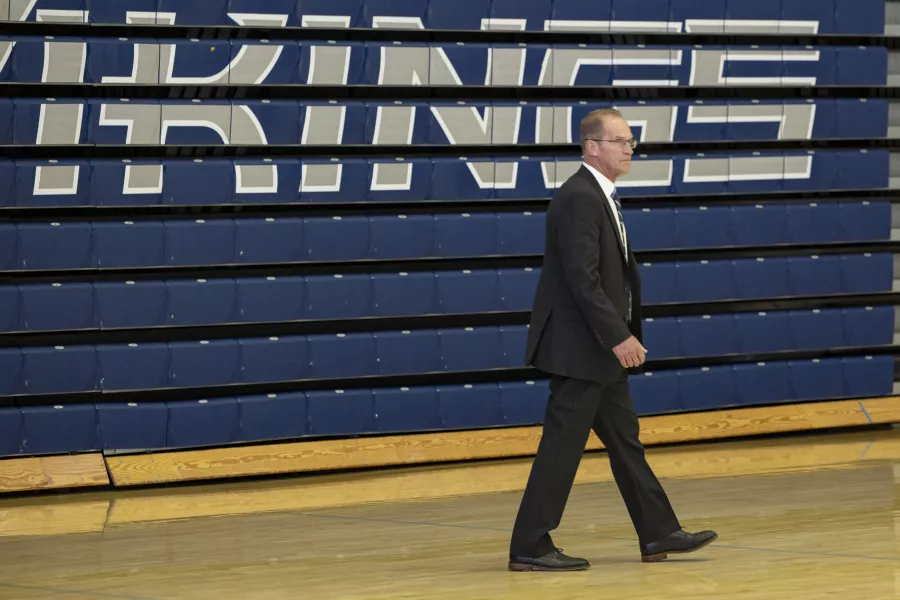
Last spring, when Sterk was in Bellingham for the final interviews, he would walk the nearly two miles from his hotel to campus and back, retracing many of the steps of young James Martin Sterk. If the climb and descent of the hills left his shins a bit sore, he also felt a lightness in his stride.
“I think there’s something I can do to help Western Athletics continue moving forward. They’ve done a heck of a job, but they’ve been underfunded,” he notes. “It’s a full circle, coming back here and all, and in a way, I’ve been preparing for this job my entire career.
“I come back as an alum, a proud alum, very excited about the future.”

